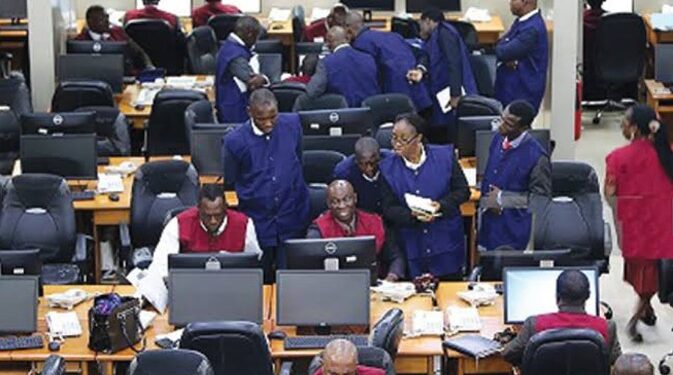Market Trends
After Failed Attempt, CBN Charts New Course for Currency-Based Trade

The Central Bank of Nigeria (CBN) has revealed plans to reintroduce a comprehensive framework that will enable Nigeria to conduct bilateral trade using national currencies — a move aimed at strengthening the naira, reducing dependence on the U.S. dollar, and promoting sustainable trade relationships.
Governor of the apex bank, Olayemi Cardoso, disclosed this while addressing journalists at the International Monetary Fund (IMF) and World Bank Annual Meetings in Washington D.C. He explained that Nigeria’s earlier experiment with local currency trade settlements failed to deliver the intended results, but the CBN has since drawn key lessons that will inform the new model.
“We have had an experiment with switching to national currencies in bilateral trade, but to be frank, it did not work out very well for us,” Cardoso said. “That is not to say we have abandoned the idea. We are at an early stage of developing a new and stronger framework, now that our currency is more competitive, to ensure it becomes a win-win for everyone.”
Cardoso stated that the new framework will adopt a more structured and risk-managed approach, ensuring that future agreements between Nigeria and its trading partners bring tangible benefits and ease pressure on the nation’s foreign reserves.
Learning from Past Challenges
Bilateral currency trade settlements, which allow two nations to transact directly using their local currencies, have long been seen as a way to reduce exposure to volatile foreign exchange markets.
In 2018, Nigeria and China signed a ₦720 billion (RMB 15 billion) currency swap deal designed to ease dollar demand and facilitate trade between both countries. However, the initiative struggled due to limited awareness among traders, weak yuan liquidity in the Nigerian market, and exchange rate uncertainties. Many importers continued to rely on the U.S. dollar for payments, undermining the objective of the deal.
Despite these setbacks, the two nations renewed the agreement in December 2024, expanding its value to ₦3.28 trillion (RMB 15 billion or about $2.09 billion). The renewed deal, valid for three years and renewable upon mutual agreement, is expected to boost trade efficiency, strengthen financial cooperation, and simplify naira–yuan transactions.
Economic Reforms Strengthening Confidence
Cardoso noted that the CBN’s recent foreign exchange and macroeconomic reforms have already begun yielding results. He said the reforms have made the naira more competitive, attracted investor confidence, and restored Nigeria’s trade surplus for the first time in several years.
“For once, we have a situation where Nigeria is recording a positive balance of trade, with a trade surplus estimated at around six per cent of GDP,” he said. “This reflects a complete restructuring of our economy — one that is gradually building resilience, encouraging local production, and reducing import dependence.”
The CBN governor emphasized that the new framework for currency trade will be designed in alignment with the ongoing economic reforms to ensure macroeconomic stability and sustainable growth.
Global Representation and Policy Coordination
Cardoso, who serves as the First Vice-Chair of the Intergovernmental Group of Twenty-Four (G24), also highlighted Nigeria’s increasing role in global financial discussions. He explained that developing and emerging economies are now better represented in the decision-making processes of global financial institutions such as the IMF and World Bank.
“It has been very useful to see that under the leadership of Argentina as Chair of the G24, emerging economies now have a stronger voice within the Bretton Woods system,” he noted.
The G24, established in 1971, serves as a forum for developing countries to coordinate their positions on international monetary and development finance issues. Cardoso described it as “a platform for mutual learning and policy exchange” between developing nations and global financial institutions.
Focus on Sound Policies and Sustainable Growth
Reiterating the CBN’s commitment to maintaining economic discipline, Cardoso stressed that consistent and sound macroeconomic policies are essential for stabilizing inflation, sustaining growth, and shielding emerging economies from external shocks.
“There is a clear correlation between countries that have adopted sound macroeconomic policies and the progress they are recording in growth and disinflation,” he said. “Nigeria’s experience shows that early, decisive, and consistent reforms can restore confidence and build long-term stability.”
As Nigeria prepares to relaunch its local currency trade initiative, experts believe the success of the new framework will depend on effective policy coordination, robust liquidity management, and sustained investor confidence.
If successful, the policy could mark a turning point for Nigeria’s external trade, positioning the naira as a stronger regional currency and reducing the country’s long-standing reliance on the U.S. dollar for international transactions.



